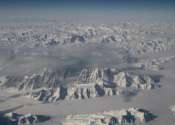Quantum gas turns supersolid
Researchers led by Francesca Ferlaino from the University of Innsbruck and the Austrian Academy of Sciences report in Physical Review X on the observation of supersolid behavior in dipolar quantum gases of erbium and dysprosium. ...







